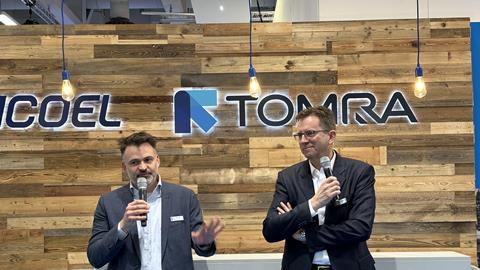Streamlined regional structure will operate from three headquarters following the merging of Tomra Food’s fresh and processed business areas
Tomra Food has restructured its business to become more responsive to its customers around the world.
Until now Tomra Food’s operations have been split between two core business areas: fresh and processed. Now the company is merging these two divisions and switching to a regional model focused on sales and service.
The restructured business will operate in three main regions: the Americas (headquartered in Sacramento, California, and headed by Ryan Buzzell), APAC (from Melbourne, headed by Paul Slupecki), and EMEA (from Leuven in Belgium, headed by Karel Strubbe).
In addition, the company is integrating all its R&D units – as well as its supply chain, product development, operations and production – into one central hub called Global Solutions. This will be predominantly based in Dublin and Leuven, with some functions in other locations.
Tomra Food said the move would boost its operational efficiency and capacity for innovating and bringing effective solutions to market.
“The reason for these changes is that our business is very global, and we have a lot of dependencies across different time zones,” explained Harald Henriksen, head of Tomra Food.
“We want to work directly with the customer in as few time zones as possible, so we can be agile, responsive and develop local partnerships. It’s about the speed and quality in communications.”
He added that the Global Solutions R&D hub would be headed up by a single person, Ken Moynihan, making it easier to focus resources on priority product developments.
Going forward, there will be a focus on developing sorting machines to identify new quality issues and defects caused by climate change. And given the investment challenges faced by many customers, Tomra Food is exploring options for companies to lease equipment on a temporary basis.
Tomra Food is a division of Tomra Group. Founded in 1972, the Norwegian company specialises in sorting technologies for the food, recycling and mining sectors, as well as machines for the automated collection of used beverage containers.







